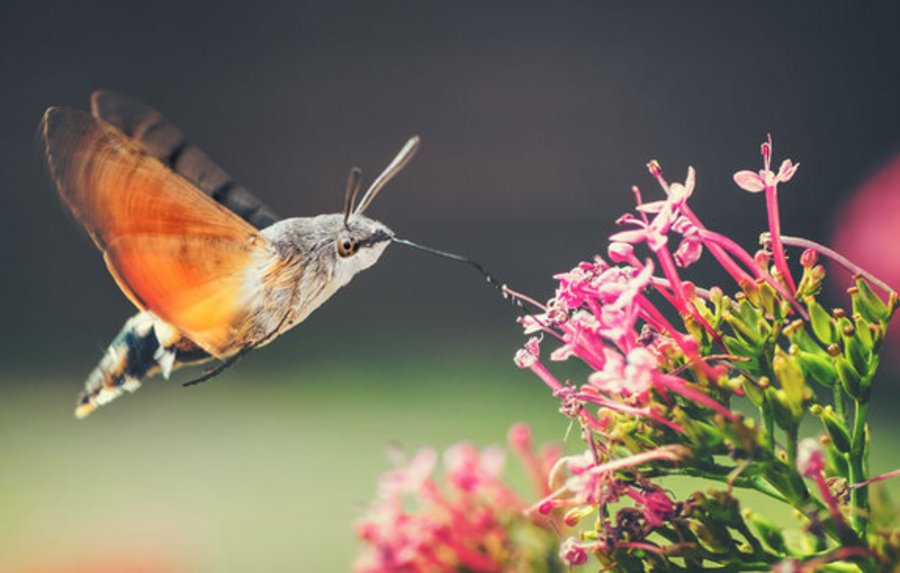Insects are the most species-rich animal class. They live in all climatic zones of the earth, even in the ice. But in fact there are more insects in warmer than in cooler regions.
Some insects benefit from rising temperatures. Heat-loving species such as the praying mantis, certain wasp species, butterflies such as the admiral or the hawk-moth, have recently spread northwards from the Mediterranean area and now feel at home here too. Adaptive insects like the wood-bee, the biggest native wild bee species, and generalists get along well also with the higher temperatures. For insects that prefer cool and humid environments, however, it becomes more difficult.Species that were previously indigenous could disappear in the next few decades. Animals and plants migrate to new areas and compete with native species. What effects these movements will have on plant protection in the future has not yet been sufficiently investigated.
Complex interactions in the ecosystem
The flowering time of the plants also depends on temperature. The life cycles of insects and flowering plants have become interdependent over very long periods of time because they depend on each other. A study by the University of Würzburg showed, using mason bees and pasqueflower, that flowering and hatching times do not shift to the same extent due to rising temperatures, so that fine tuning no longer works. In the trial, the decreasing fit caused reduced activity and reproduction in the insects. In ecosystems, there are complicated interactions between different animal and plant species. Changes can disrupt this balance and interrupt food chains. According to the Intergovernmental Panel on Climate Change, there are short-term social and economic benefits for individuals and small profits in limited areas. Extreme weather events, which will also occur more frequently, change living conditions and thus harm everyone. In the long term, climate change will only know losers, because the basis of life for all is dwindling.
Read more: University of Würzburg: Insects and Climate Change
Information System for Agriculture and Food Research (FISA): Adaptation of alpine pollinators in times of global change (ADAPT)


